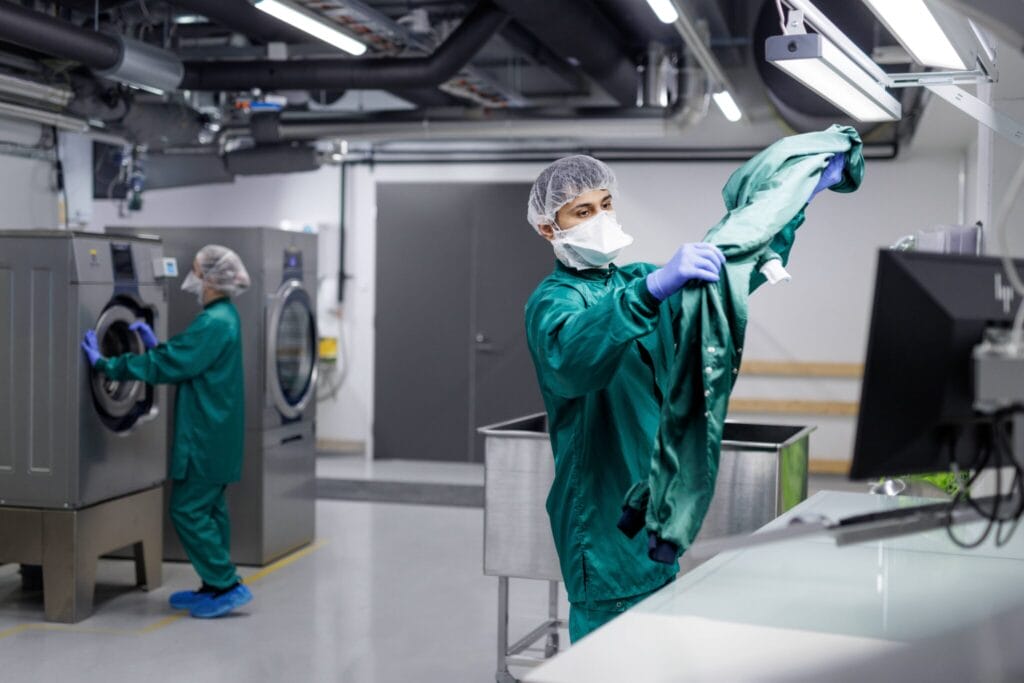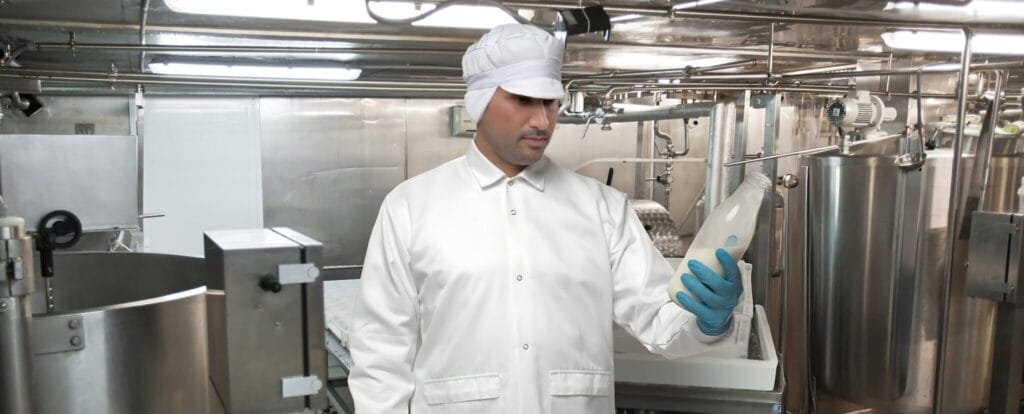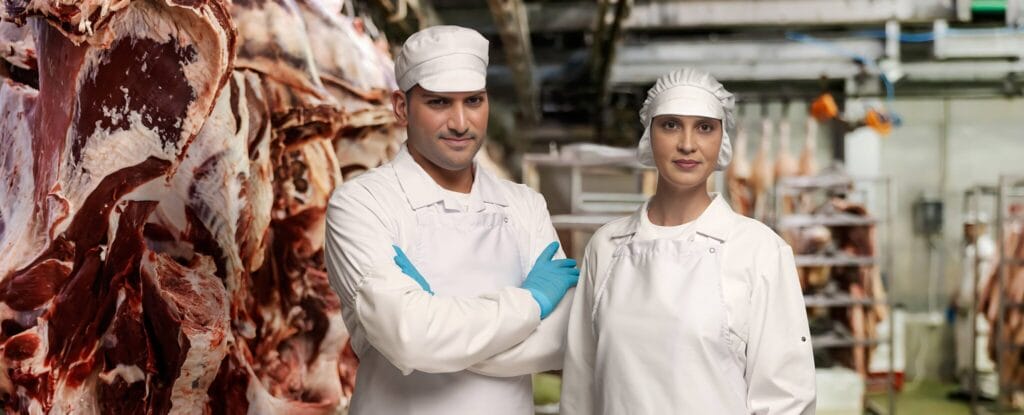
Circular economy without compromising the high standard of hygiene
Workwear Service: circular economy without compromising the high standard of hygiene
A locally produced textile service that is certified and in compliance with the hygiene standards is the most effective protection from microbes and viruses.
In addition to hand hygiene, workwear also plays a key role in the fight against virus epidemics. The main downside of disposable protective clothing is the amount of waste it generates. However, high standards of hygiene and environmentally friendly circular economy are not mutually exclusive. At Lindström, we combine them naturally in our daily work. We design and provide durable workwear as a service that protects the wearer in the working environment.
Standardized microbiological purity management
The most effective and environmentally friendly method is a locally produced, hygienic, certified textile service. We are talking about microbiological purity management in accordance with the EN 14065 standard. In this process, we use thermal or chemical disinfection that destroys microbes to ensure hygienic and sustainable products for its user. Microbes include bacteria, viruses as well as yeast and mold fungi. These procedures help us to ensure safety both for the user and the user’s surroundings.
When it comes to treating laundry that has been exposed to infectious diseases or infected, we follow the so-called closed laundry cycle process meant for infected laundry. In such a process, there is no contact with the infected textile before it is washed. The customer packs the textiles in a water-soluble plastic bag and encloses it to a yellow laundry bag so that our service representative can safely retrieve the infected textiles. During transport, the infected textiles are kept separate from other textiles, and there is a dedicated place for them inside the laundry too. At the laundry, the textile care worker places them directly into the washing machine inside the water-soluble plastic bag. The washing process uses either thermal or chemical disinfection to ensure a hygienic end-result. After the products have been washed, they can be safely handled in the usual way and delivered back to the customer.
Cleanroom Service for sterile production facilities
In our Cleanroom Service, textiles are always hygienic, correctly washed and properly packed in ISO classified controlled environment in accordance with even stricter hygiene requirements. The contamination by both microbes and particles must be prevented. We do that by controlling the concentration of particles with ISO 14644-1 standard and microbes according to GMP (Good Manufacturing Practice) procedures. The textiles can also be sterilized, either by us or the customer. This way, we can be sure to meet the customers’ quality requirements also in segments with enhanced hygiene requirements, such as the pharmaceutical industry.
Responsibility as a starting point
Our workwear service also underlines highlights responsibility and circular economy. Special attention is paid already in the designing process and material selections to maximize the entire life cycle of the garment. We only select fabrics that have been carefully tested both in terms of comfort and durability. We take into account the repairability of the garment during the service already when designing the garment. The average life cycle of our garments is at least three years. In 2019 alone, we repaired our workwear more than over 5 million times. Once a garment is no longer fit for wear, we will dispose of it responsibly on behalf of the customer. The level of recyclability of our disposed textiles increases year by year, and we are actively looking for new ways to recycle textiles.
“When the workwear is correctly maintained, its microbiological purity is ensured during its lifetime and the garment can be recycled after its life cycle. This helps to ensure compliance with both environmental and hygienic goals,” summarises Puputti.



